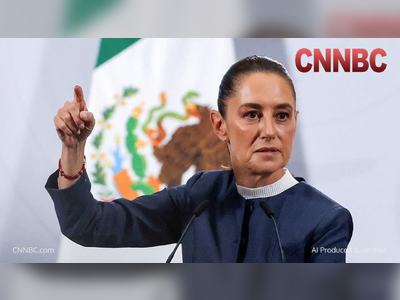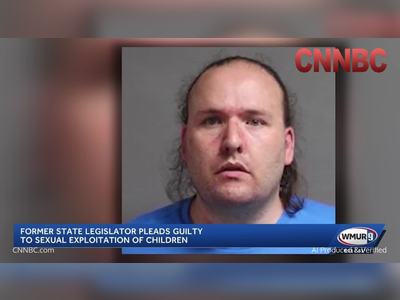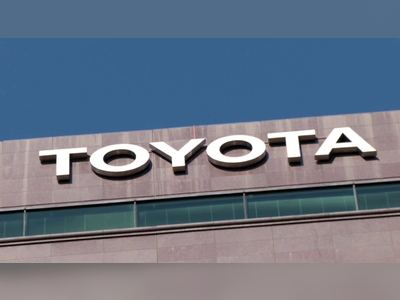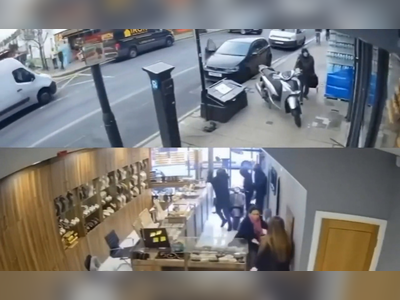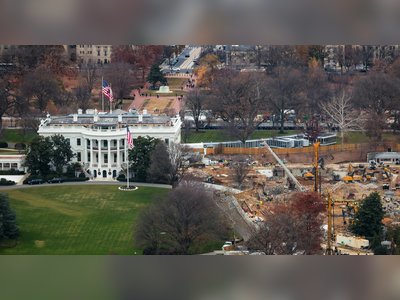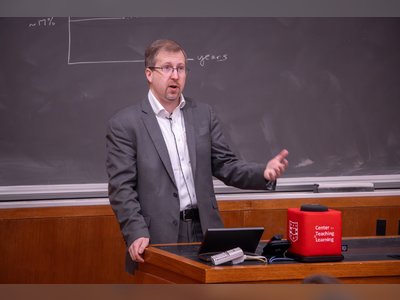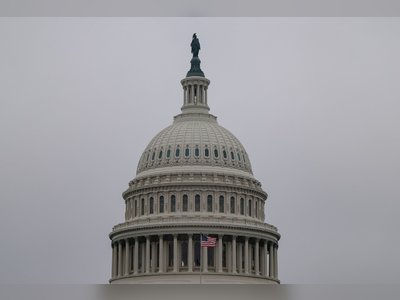Haiti's Grim Reality: Deadly Attack on Hospital Reopening Highlights Nation's Struggles
A chilling assault by gang leader halts progress as Haiti's fragile healthcare system grapples with violence and instability.
In a shocking display of violence that underscores Haiti's ongoing struggles with gang influence and political instability, a tragic attack marred what was meant to be a positive step for the country's fragile healthcare system.
On Tuesday, armed men opened fire during a press conference intended to announce the reopening of Haiti's largest public hospital.
The attack claimed the lives of at least two individuals—a journalist and a police officer—while leaving several others injured.
The assault took place in the heart of Port-au-Prince, where journalists had assembled to hear from the new health minister, Duckenson Lorthe Blema, about the reopening of the State University of Haiti hospital.
Known locally as the general hospital, this vital institution has been shut down since March due to escalating gang violence that led to the ousting of former Prime Minister Ariel Henry.
The current Haitian administration had hoped to symbolize resilience by reopening the facility.
However, the attack, claimed by notorious gang leader Johnson “Izo” André, shattered these hopes.
André, who leads the gang coalition Viv Ansanm, declared in a video that the hospital's reopening did not have the gang's blessing, asserting the coalition's control over much of the capital.
The gang's brazen defiance has highlighted the severe security challenges facing Haiti and the growing power of criminal factions.
Video footage circulated online depicted the chaotic aftermath inside the hospital, with injured journalists lying on the ground awaiting help.
The transitional presidential council condemned the attack on social media, promising that such acts would face consequences and extending condolences to the families of those affected.
This tragic incident is yet another reminder of Haiti's complicated political landscape and the pervasive threat posed by gangs, which have effectively crippled the healthcare sector.
This sector was already strained by resource shortages and a surge in patient numbers due to gang-led destruction of medical facilities.
Compounding the country's troubles are health issues brought on by the rainy season, which elevate the threat of water-borne diseases in crowded, impoverished urban areas.
With the shadow of cholera looming large—over 84,000 suspected cases reported—Haiti's healthcare frailties are brutally exposed.
The attack not only symbolizes the acute challenges Haiti faces in restoring stability and bolstering public services, but it also serves as a stark reminder of the urgent need for coordinated international aid and internal reforms to address the root causes of such violence.
As the globe looks on, Haiti stands at a crossroads, its ability to rebuild and provide for its citizens heavily reliant on quelling the violence that threatens to drag the nation further into despair.
On Tuesday, armed men opened fire during a press conference intended to announce the reopening of Haiti's largest public hospital.
The attack claimed the lives of at least two individuals—a journalist and a police officer—while leaving several others injured.
The assault took place in the heart of Port-au-Prince, where journalists had assembled to hear from the new health minister, Duckenson Lorthe Blema, about the reopening of the State University of Haiti hospital.
Known locally as the general hospital, this vital institution has been shut down since March due to escalating gang violence that led to the ousting of former Prime Minister Ariel Henry.
The current Haitian administration had hoped to symbolize resilience by reopening the facility.
However, the attack, claimed by notorious gang leader Johnson “Izo” André, shattered these hopes.
André, who leads the gang coalition Viv Ansanm, declared in a video that the hospital's reopening did not have the gang's blessing, asserting the coalition's control over much of the capital.
The gang's brazen defiance has highlighted the severe security challenges facing Haiti and the growing power of criminal factions.
Video footage circulated online depicted the chaotic aftermath inside the hospital, with injured journalists lying on the ground awaiting help.
The transitional presidential council condemned the attack on social media, promising that such acts would face consequences and extending condolences to the families of those affected.
This tragic incident is yet another reminder of Haiti's complicated political landscape and the pervasive threat posed by gangs, which have effectively crippled the healthcare sector.
This sector was already strained by resource shortages and a surge in patient numbers due to gang-led destruction of medical facilities.
Compounding the country's troubles are health issues brought on by the rainy season, which elevate the threat of water-borne diseases in crowded, impoverished urban areas.
With the shadow of cholera looming large—over 84,000 suspected cases reported—Haiti's healthcare frailties are brutally exposed.
The attack not only symbolizes the acute challenges Haiti faces in restoring stability and bolstering public services, but it also serves as a stark reminder of the urgent need for coordinated international aid and internal reforms to address the root causes of such violence.
As the globe looks on, Haiti stands at a crossroads, its ability to rebuild and provide for its citizens heavily reliant on quelling the violence that threatens to drag the nation further into despair.


